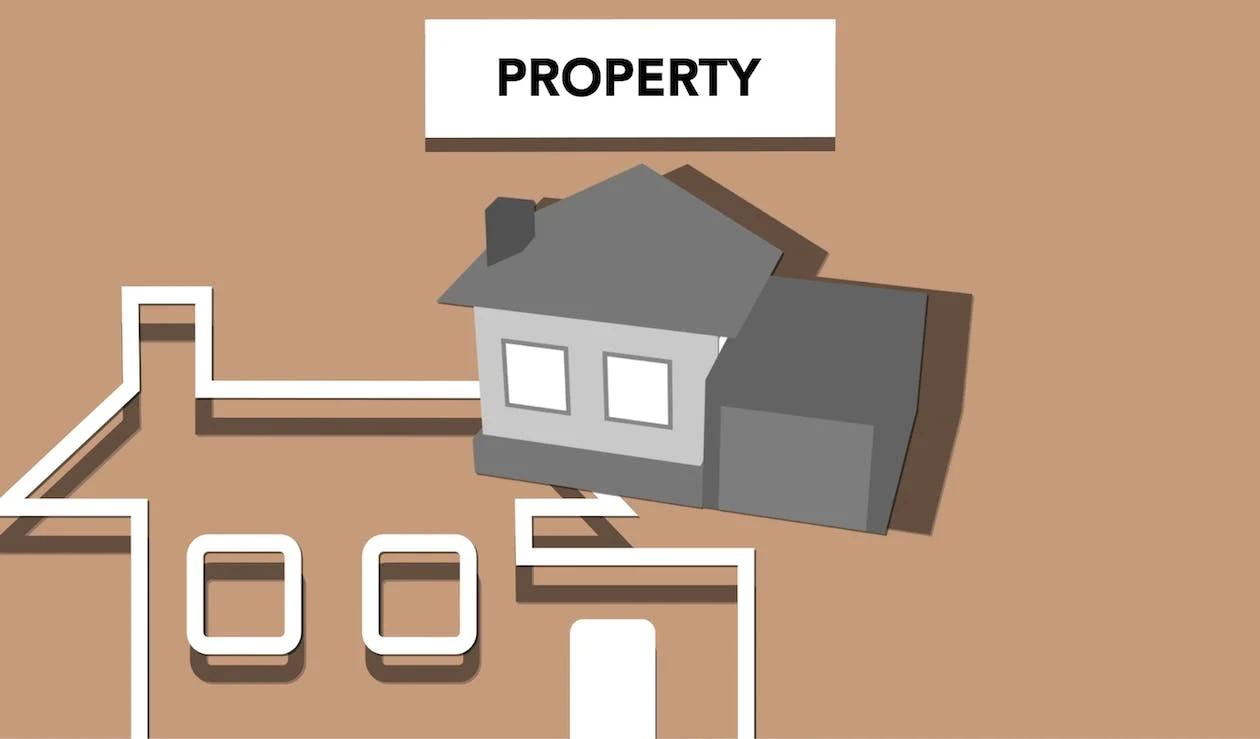Humanity has known the importance of land and real estate since the agricultural revolution, and it has been an investment vehicle for thousands of years. Real estate hasn’t lost value even now with so many other investment options, from stocks and bonds to novel investments like cryptocurrencies and NFTs. In fact, for most homeowners, real estate is the only significant investment asset they have.
If you want to explore real estate as an investment option, there are quite a few things you need to understand. My goal is to communicate the basics of real estate investing, especially for investors interested in the NYC real estate market.
What Is Real Estate Investing?
Investing your capital/savings in real estate assets for profit is called real estate investment. And it’s much more than just about buying a property or land.
Real estate investment offers you profit in two ways:
Rental Income: In a city like NYC, you can usually only generate rental income from finished properties that the renter can occupy and pay you to rent. In rural areas, you can lease/rent out agricultural land and generate a monthly/yearly rental income.
Capital Appreciation: Real estate appreciates in value, so you can sell it for a profit. The rate at which a property’s price appreciates is driven by multiple factors, many of which are not in your control. This includes the neighborhood – whether it’s growing or shrinking, proximity to public transport and commercial activity in or near the area. However, you can still plan for many of these factors when buying an investment property.
Real estate investing is different from other investments because there are actual costs involved, even when you are just holding a property. This includes property taxes and maintaining the property. However, there are also financial benefits to holding real estate that other investment assets do not offer, which easily counteract the cost of holding real estate. It’s one of the reasons why it’s such a coveted investment asset.
Why Invest In Real Estate?
- Real estate investment can offer both cash flow and capital appreciation. This makes the collective returns quite substantial. And since you can also increase the rent, it’s an inflation-resistant passive income source, making it more dependable than other income sources.
- Real estate is one of the lesserrisky investments there are, but you also have to invest more money than other potential opportunities. If you hold for the right amount of time, it’s a lot easier to profit in real estate as a significant fall in real estate prices is rare. Even when it happens, it’s usually due to market dynamics that affect most other investment assets. In recent history, the two instances when prices fell were the great recession and COVID. The rebound after COVID was faster than the rebound after the great recession.
- Even if you are not generating rental income from a property and your real estate investment is merely a home you have paid off, it’s an important financial benefit. Not only does it save you the money you would have spent on rent, but it’s also a massive asset you can borrow against (by using it as collateral) or sell (usually for a profit) when you have a dire need of funds.
- The tax benefits of investing in a rental property are quite significant. The easiest tax benefit to understand is depreciation, which allows you to depreciate the value of your property (not land) over the course of 27.5 years. For example, you invest in a single-family home in NYC for $1 million, and it’s assessed that the value of the land is $300,000. So you can depreciate the remaining $700,000 over the course of 27.5 years (even if you don’t hold it for that long). That comes to about $25,450 every year. If your rental income from the property is $48,000 a year, this depreciation will reduce the taxable income to just $22,550. And you can further reduce it by claiming property tax and maintenance deductions. So, somewhere between 60% and 80% of your rental income might be completely tax-free.
- Real estate investment also allows you to defer your capital gains tax through the 1031 exchange if you follow the IRS rules that include reinvesting all the proceeds from the sale of one real estate property into the purchase of another or multiple others. It allows you to build wealth at a greater rate by reinvesting the amount that would have gone to taxes.
Different Ways Of Investing In Real Estate?
There are different ways to gain exposure to the real estate market, and each has pros and cons.
Buying Property
The most direct way to invest in real estate is by buying a property (or land). You can rent it out, live in it, then sell it, or improve it and sell it for a profit (it’s called flipping). The main problem with this method is the cost.
You may need a significant sum to invest in real estate. Currently, even the cheapest properties in NYC are around $100,000, and you may need a significantly higher sum to buy a property to generate a sizable passive income.
REITs
Investing in REITs or Real Estate Investment Trusts is another way to indirectly invest in real estate, allowing you to get around capital-related problems. You can invest in a REIT by buying its shares and get a dividend-based income. REITs also give you more room for diversity. If you buy one property for $300,000, all your risk is concentrated on that one property.
If you can’t get a tenant, you have no rental income. But with the same capital, you can invest in any number of REITs. So even if one or two of them suspend or slash their dividends, you will still get the income from others. REITs also give you exposure to real estate assets you might not get access to as an individual investor, like hotels, hospitals, theaters, shopping malls, etc.
Most of the dividend-based income from REIT is taxed at the ordinary income rate. Though sometimes, a REIT can pass on its capital gains, profit, or loss to the investors as well. But from a taxation angle, REIT is not as beneficial as an investment in real property.
The capital appreciation angle is also different, as REIT stocks may not appreciate at the same pace or as consistently as property prices do.
There are other ways, like syndication, which allows multiple investors to pool their money to buy an investment property. They share in the rental income, tax deductions, and even the profits/loss realized when the property is sold, based on the size of their financial stake in the property. But directly buying a property or investing in REITs tends to be the most common way of investing in real estate.
Types Of Real Estate You Can Invest In?
There are three major categories of real estate assets you can invest in, each of which has several subcategories. Different types of real estate properties offer different benefits, risks, and profit opportunities.
Residential Real Estate: Apartments and single-family homes are the most common types of residential real estate properties in the US, and in NYC, the most commonly available residential properties are co-op and condo apartments. But you can also invest in multi-family properties.
In apartments, most of the maintenance is taken care of by the building managers, but if you buy a single-family home and rent it out, you, as the landlord, will be responsible for its maintenance. The tax benefits are also different. There are two types of apartments in NYC – co-op apartments which might be cheaper, but you may not be able to rent them out, and condos, which you can easily rent out.
Commercial Real Estate: The diversity in commercial real estate is quite significant. You have retail, office, industrial, and leisure properties. There are further classifications within these asset classes. For example, a light industrial property like a warehouse may command a higher rent than a heavy industrial property from a declining sector.
Land: From vacant land in the cities to agricultural land in rural areas, there are multiple categories of land you can invest in. Vacant land is relatively rare in densely populated cities like NYC.
Real Estate vs. Other Investment Vehicles
Comparing real estate investing with other forms of investments can help you determine whether it’s the right fit for you.
Real Estate vs. Gold: Gold preserves its value in harsh markets but doesn’t appreciate in value as consistently as real estate prices. The price of gold (per ounce) in the middle of the 1990s was around $740. The price per square foot in Manhattan was around $590. The gold price now is around $1,646, whereas the price per square foot is $1,612 ($2,000 from some sources).
That’s an appreciation of over 122% in gold prices and 173% in residential. Gold prices can fall deeper than property prices, so you can increase your return potential by buying at the right time, but you can also cut those profits (or incur a loss) by selling at the wrong time. The probability of losing money with real estate is relatively low, especially if you include the rent you have collected during the time you held the property. But depending where you are, there can be added costs you have to pay such as transfer fees, mansion taxes, mortgage recording taxes, etc.,
Real Estate vs. Stocks: Stocks can offer dividends for income, which is similar to rent from real estate properties. In price appreciation, stocks can outpace real estate, even if you simply track the market or an index that gives you exposure to part of the stock market. One such index – S&P 500, has risen over 600% since 1995.
The real estate (on average) wouldn’t have resulted in price appreciation nearly as significant as this. But there are a few points in favor of real estate as an asset class, starting with the tax difference between rental income and dividend income. Then there is a risk, which is much higher in stocks than in real estate.
Real estate can be compared to other investments, like bonds, which do not offer nearly the same level of returns real estate can, even though they are very safe.
Novel investments like cryptocurrencies and NFTs are on the other end of the spectrum – highly volatile/risky, but in certain instances when you can capitalize on their maximum return potential, the returns can be exceptional.
Tips for Successful Real Estate Investing As a Beginner
Some of these tips are specific to the NYC real estate market. However, that doesn’t mean they can’t be useful for investors working in other markets in the US.
- Learn the essentials of being a real estate investor. You should know how to evaluate a property, run the numbers to see if it will produce the financial returns you expect, read the market, and understand the responsibilities of a landlord (to begin with). You should also understand the time cost and commitment this investment avenue requires and determine whether you can offer it the time and attention it deserves. Even as a passive income source, real estate investment deserves your full focus.
- Do your research. Whether you are buying a rental propertyor a property to flip, learn as much as you can about the options you have available and the market. Even if you have found a promising property, you might not be able to capitalize on its potential if you sell in a buyer’s market. Learn the return potential different boroughs and neighborhoods offer. A neighborhood that may not have the best rental yield may contribute to a rapid appreciation of your property price.
- Choose the financing model and property type that best matches your investment goals and approach. For some investors, financing an investment property and paying for only part of its price upfront (down payment) and part of the monthly mortgage (the rest comes from rent) might be better than generating income from a rental property. Similarly, choosing the right property type can significantly impact your responsibility as a landlord. You can bring in a property manager or outsource property management, but it’s not financially feasible until you reach a certain portfolio size/rental income threshold.
- Create an investment budget and try to find the properties that fit that budget rather than adjusting/inflating the budget for what you might consider a “good deal,” at least not until you have developed a good understanding of the market.
- Try to diversify to minimize the risk. It can be diversification in property types or neighborhoods and boroughs.















